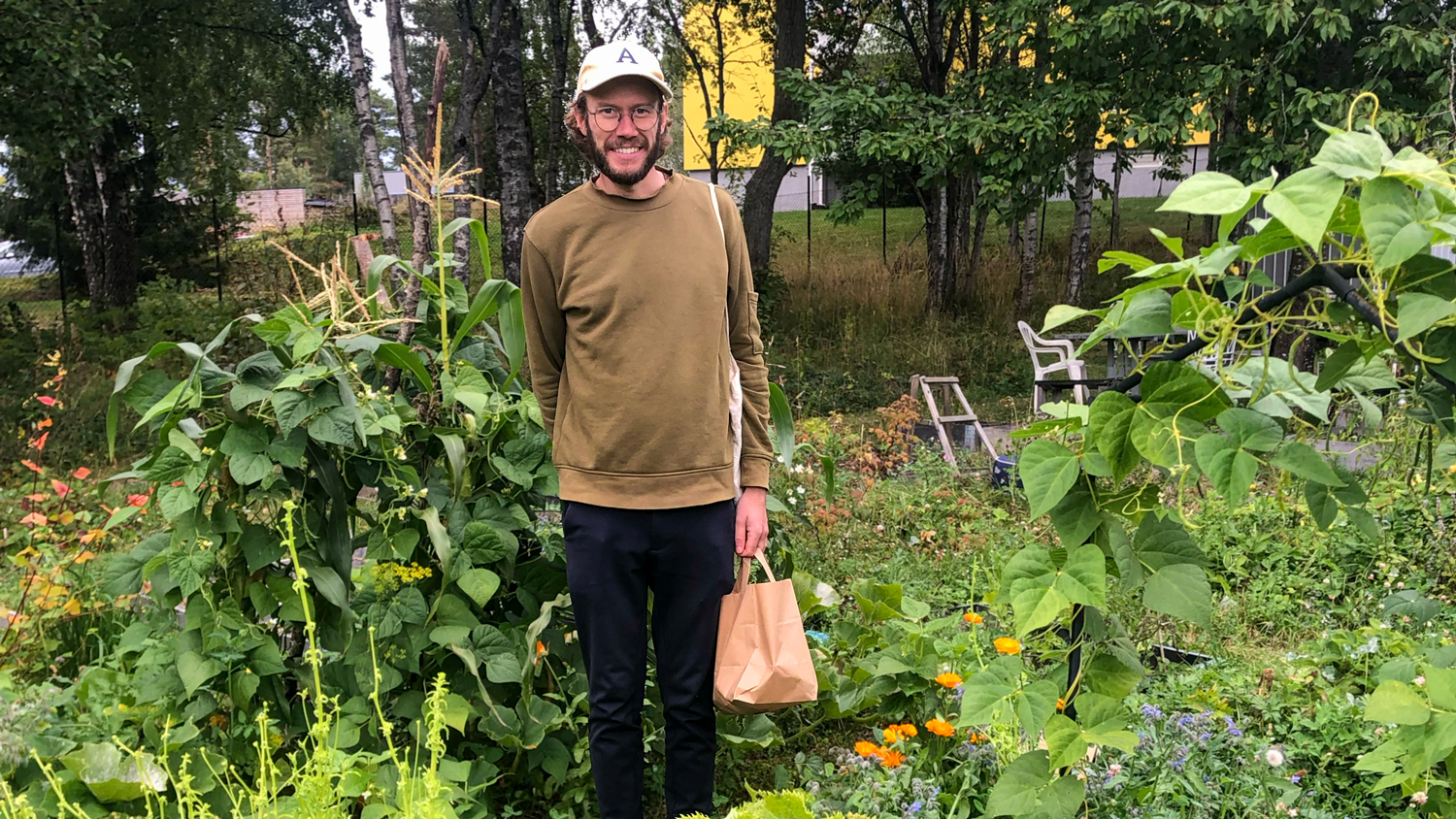
Community gardens for health and urban biodiversity
Vebjørn Egner Stafseng is a PhD student working on urban community gardens. These are initiatives where urban food gardening is carried out cooperatively, with aims of including a diversity of urban dwellers.
Improved mental and physical health, increased awareness and empowerment relating to sustainability issues, increased urban biodiversity and stormwater preparedness are some of the potential benefits.
Vebjørn Egner Stafseng is working at Norwegian University of Life Sciences, NMBU, but is currently visiting SLU in Alnarp.
– I want to build a bridge between the agroecology group at SLU Alnarp and the agroecology group at my home university in Norway, NMBU. I see this as some initial steps in (re)establishing a Nordic Agroecology network. I also work on this topic in the planning of the next Agroecology Europe forum, which will be in Malmö in the fall of 2025, Vebjørn says.
Vebjørn also wants to broaden his network of researchers who work with topics of sustainable food systems, urban food systems, and urban agriculture. The aim is to have collaborators for potential future research projects.
Community gardens – benefits for people and planet
Can urban community gardens, if done correctly, bring positive benefits for many people and our planet?
– Yes, a wide range of benefits, such as improved mental and physical health of urban dwellers, increased awareness and empowerment relating to sustainability issues, increased urban biodiversity and stormwater preparedness, to mention a few. The main challenge is for these initiatives to function in a desirable and resilient way, which is why I have worked with cases in Oslo, Norway to understand some of the challenges and tensions the initiatives face and how they can be dealt with. My aim is to contribute to the increase of more desirable and resilient urban community gardening, says Vebjørn.
A workshop for a desired future
In his doctoral project, Vebjørn has spent three years doing fieldwork. He has studied three cases where he has done participant observation. In addition, he has done two visioning workshops and one focus group interview as well as individual interviews with people involved in the cases.
– I have transcribed and analyzed all my data, and I am currently writing my remaining articles. I have previously written and co-written one article and two chapters for an anthology. One of my articles will have the visioning workshops as the focus. Here, I gathered participants of my cases to a workshop where we worked on a concrete desirable future state of the case, five or ten years into the future. This vision is meant to guide action in the present, to help the actors involved move towards the desired future. In my article, I will analyse this process and the visions we co-produced in a sustainability framework.
A passion for transforming food systems
Preferably, Vebjørn would like to continue his academic career with a postdoc or researcher position where he could work with the development of agroecology as a research field and transdisciplinary research on food systems transformations.
– I am also open to the idea of working outside of academia, but still within the area of food systems transformations. What is most important for me is to be able to contribute to the development of more just and sustainable food systems. Whether this is in an academic position or outside of academia is not the most important thing. I also enjoy teaching, which makes me lean towards an academic position. However, I do value my spare time, so a dream position does also include a good work-life balance.
The joys and challenges of cultivating vegetables
When he is not working, Vebjørn is part of an allotment, both in Malmö and at home in Oslo.
– I really enjoy the process of cultivating vegetables, with all the joys and challenges that comes with it. I also generally enjoy being outside, whether it is running, cycling, skiing (in the winter), hiking or birding. Me and my partner also play in the football pub league in Malmö with low-key matches most Saturdays in autumn and winter. I play in a band back home and try to go to some concerts while I’m here. Indoors, I do a bit of baking and cooking, read some fiction, and watch the occasional TV-series.
A great place to stay with a resident eagle owl
Changing environment from Norway to Southern Sweden, how has that been?
– Life in Southern Sweden is great. I really like the parks, like Alnarpsparken outside my office. I’ve been fortunate to see the “resident” eagle owl on numerous occasions the past weeks, which has been a profound experience.
– SLU offers a great diversity of research environments relevant to my interests. It has taken me a little while to get into it all, understand the structure and who works with what. But it’s starting to make sense, and I think it’s a great place for me to stay.
Contact
-
PersonHåkan Jönsson, Coordinator for Food and CitiesDepartment of People and Society